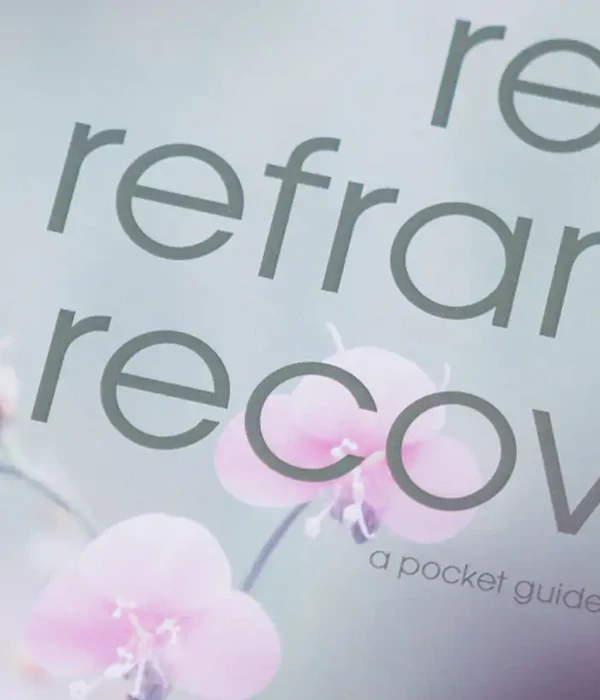Individual Therapy
Individual therapy gives you the space to explore your thoughts, emotions, and challenges in a safe and supportive setting. It is a one-to-one approach that helps you work through difficulties, build resilience, and move towards a healthier, more balanced life. Whether you want depression support, help managing stress, or guidance in handling personal struggles, this form of talk therapy offers a confidential space tailored to your needs.
At Steps Together, we provide personal therapy sessions that focus on understanding what matters most to you. Our approach is compassionate and practical, offering support that fits into your life while addressing the issues that may feel overwhelming. By working with a trained therapist, you can gain clarity, learn coping strategies, and take meaningful steps towards lasting change.
We believe therapy should feel approachable and collaborative, not intimidating. That’s why our one-to-one therapy is designed to meet you where you are, helping you explore your challenges at a pace that feels right. As part of our wider range of therapy modalities, individual sessions provide a strong foundation for recovery, whether you are seeking structured depression support, want to strengthen relationships, or simply need space to reflect, we are here to walk alongside you.

Take the Next Step With Us
We know reaching out for support can feel daunting, but you don’t have to face it alone. Our team is here to listen, guide, and help you find the right path towards greater emotional wellbeing.

What Is Individual Therapy?
Individual therapy is a form of psychotherapy where we work one-to-one with you in a private counselling setting. It focuses on understanding your thoughts, emotions, and behaviours, while offering practical strategies to support your wellbeing and personal growth.
Therapy Modalities We Offer
We provide a range of evidence-based therapy modalities to suit different needs and preferences. These approaches are tailored so that sessions remain relevant to your goals and challenges.
Our therapies include Cognitive Behavioural Therapy (CBT), which helps identify and change unhelpful thought patterns, and Dialectical Behaviour Therapy (DBT), which supports emotional regulation and stress management. We also offer psychodynamic therapy, which explores past experiences that may influence current behaviour, and Acceptance and Commitment Therapy (ACT), which encourages greater awareness of thoughts and feelings.
Each modality has its own strengths, and we carefully match the approach to your circumstances. You can learn more about the specific therapies we provide on our therapy modalities page.


Therapeutic Process Explained
The therapeutic process begins with an initial session where we explore your history, concerns, and expectations. This helps us understand what brings you to therapy and how we can best support you.
Sessions usually last between 45 and 60 minutes and take place in a safe, confidential environment. We encourage open discussion, and over time, this process helps build trust and clarity.
As therapy progresses, we may introduce structured techniques, reflective exercises, or practical “homework” to reinforce what is discussed in sessions. The pace and focus are flexible, allowing us to adapt to your progress and changing needs.
Our role is to guide, support, and equip you with strategies that promote resilience and long-term wellbeing.
Conditions and Concerns We Support
We provide tailored one-to-one therapy sessions that help people manage a wide range of emotional, psychological, and behavioural challenges. Our approach focuses on building practical coping strategies, addressing underlying causes, and supporting long-term recovery and personal growth.
Depression Treatment Support
Depression affects daily life in many ways, from constant low mood to a loss of interest in activities once enjoyed. We work closely with individuals to identify the specific challenges they face and create a structured plan that encourages gradual improvement.
Through therapy, we explore thought patterns, behaviours, and lifestyle factors that may contribute to depressive symptoms. This process helps uncover triggers and supports healthier ways of responding to difficult emotions.
Our sessions also focus on practical coping strategies, such as building routines, improving sleep, and strengthening social connections. By combining these approaches, we aim to reduce the weight of depression and help individuals regain a sense of stability and control.
PTSD Therapy and Support
Post-traumatic stress disorder can develop after experiencing or witnessing a traumatic event. Symptoms often include flashbacks, nightmares, and heightened alertness, which can disrupt everyday life.
In therapy, we provide a safe and supportive space to process traumatic memories at a manageable pace. Our approach helps reduce the intensity of distressing symptoms while building resilience and emotional stability.
We use evidence-based techniques that focus on understanding trauma triggers and developing coping strategies for when they arise. Over time, this process allows individuals to regain a sense of safety and begin to rebuild confidence in daily life.
Relationship Counselling Support
Relationship difficulties are a common source of stress and emotional pain. We offer individual therapy that helps people explore communication issues, trust problems, and conflict in a constructive way. For some, dedicated relationship counselling may also provide focused support to address these challenges more directly.
Our sessions provide a space to reflect on personal patterns that may affect relationships. By increasing self-awareness, we support individuals in developing healthier ways of relating to others.
We also work on practical skills such as setting boundaries, managing conflict, and improving emotional expression. These changes can strengthen existing relationships or prepare individuals for healthier connections in the future.
Anxiety Treatment Services
Anxiety can appear in many forms, including generalised anxiety, panic attacks, and social anxiety. We provide a safe, structured environment where individuals can openly discuss their worries and learn how to manage overwhelming thoughts.
Our therapy sessions focus on recognising unhelpful thinking patterns and replacing them with balanced, realistic perspectives. By doing so, we help individuals reduce the intensity of anxious responses and feel more in control of their daily lives.
We also introduce practical techniques such as relaxation methods and grounding strategies to manage symptoms in real time. This combination of self-awareness and skill-building offers a strong foundation for reducing long-term anxiety.
Dual Diagnosis Support
When someone is living with both a mental health condition and a substance use issue, the challenges often overlap. We provide integrated therapy that addresses both concerns together, ensuring that neither is treated in isolation.
Our sessions for dual diagnosis explore the links between emotional distress and addictive behaviours. By identifying these connections, we help individuals develop healthier coping strategies that reduce reliance on substances.
We also focus on building long-term resilience by addressing underlying mental health needs while supporting recovery from addiction. This dual approach helps create a more stable foundation for lasting change.
Bereavement Counselling Services
Grief can feel overwhelming, whether it follows the loss of a loved one, a relationship, or another significant life change. We provide a supportive environment where individuals can process their emotions without pressure or judgement. For some, dedicated bereavement counselling can offer specialised guidance and support during this difficult time.
Our therapy sessions focus on understanding the unique impact of loss and the personal meaning it carries. This helps individuals move through the grieving process at their own pace.
We also introduce coping strategies that support emotional balance, such as managing daily routines and finding constructive outlets for feelings. Over time, this approach can help individuals adjust to life after loss while honouring their memories.
Core Benefits of One-to-One Counselling
We provide a private space where people can speak openly, build resilience, and learn strategies that support lasting change. Our approach encourages self-understanding, practical coping, and steady progress through life’s challenges.
Confidential and Safe Environment
Confidential and Safe Environment
We place great importance on creating a setting where privacy is respected. Knowing that conversations remain confidential allows people to speak openly about thoughts and feelings without fear of judgement. This trust is the foundation for meaningful progress in therapy.
Personal Growth and Coping Skills
Personal Growth and Coping Skills
Counselling offers more than short-term relief. We work with clients to identify unhelpful patterns and replace them with healthier responses. This focus on coping strategies gives people tools they can use in daily life, from managing stress to handling conflict more effectively.
Focused Attention on Your Needs
Focused Attention on Your Needs
Unlike group settings, one-to-one counselling is tailored entirely to the individual. Every session centres on the client’s priorities, whether that means working through specific problems or exploring broader personal development.
Support for Complex Issues
Support for Complex Issues
Some challenges require more than general advice. We provide structured support for issues such as anxiety, depression, trauma, grief, and relationship difficulties. By addressing these concerns directly, we help clients reduce distress and regain stability.

What to Expect in a Session
When we meet with clients, we focus on creating a structured yet flexible process that balances consistency with individual needs. Our approach considers both how often sessions take place and whether they happen face-to-face or online, giving people options that fit their lifestyle and circumstances.
Session Frequency and Duration
Most individual therapy sessions last around 50 minutes, which allows enough time to explore key issues without feeling overwhelming. We usually recommend weekly sessions at the start, as this helps build momentum and trust between us and our clients. Over time, some people move to fortnightly or monthly appointments depending on their progress and goals.
The therapy booking process is straightforward. Once a client chooses a therapist, we agree on a regular time slot to provide stability and routine. Having a consistent schedule helps people feel supported and ensures continuity in their work.
Face-to-face sessions remain a preferred option for many, as they allow for direct interaction in a private, comfortable setting. However, we always adapt to individual needs, whether that means adjusting the frequency of sessions or offering flexible arrangements when circumstances change.


Online Counselling Sessions
Online therapy gives clients the same level of support as in-person work, but with added convenience. Sessions take place through secure video platforms, making it possible to access help from home or while travelling. This flexibility is especially valued by those balancing work, family, or health commitments.
For clients in the UK, we provide structured online counselling options that mirror the quality of our face-to-face sessions. More information about these services can be found at Steps Together Online Counselling.
We follow the same booking process online as we do in person, ensuring confidentiality and professional standards are upheld. Many clients find that online sessions reduce travel time and make it easier to stay consistent with therapy.
Practical Information for Clients
We understand that practical details such as cost, availability, and the qualifications of your therapist play a major role in deciding whether to begin therapy. Knowing what to expect in these areas can help you make an informed and confident choice.
Therapy costs in the UK can vary depending on the therapist’s qualifications, location, and type of service. On average, private sessions range from £40 to £100 per session. Some highly specialised services may cost more, especially in major cities.
Many private health insurance providers cover counselling or psychotherapy, but the level of cover differs. We always recommend checking your policy for details on session limits, approved providers, and excess payments. Some employers also offer Employee Assistance Programmes that include short-term counselling support.
For those concerned about affordability, some therapists offer reduced fees for students, low-income clients, or block bookings. We aim to make therapy accessible and will always discuss pricing options clearly before you commit.
The NHS provides free counselling and psychotherapy, but access often comes with longer waiting times. In many areas, NHS counselling waiting times can stretch from several weeks to several months, depending on local demand. The service is usually limited to short-term therapy, such as six to twelve sessions.
Private therapy offers quicker access and more flexibility in choosing your therapist, type of approach, and session frequency. This can be especially valuable if you need support immediately or prefer longer-term, ongoing therapy.
We recognise that both options have value. NHS services remove financial barriers, while private sessions provide choice and continuity. Some clients use a combination, starting with NHS support and moving to private therapy when they want more tailored or extended care.
Our therapists are registered professionals with recognised UK bodies such as the BACP, UKCP, or HCPC. This ensures they meet strict standards of training, ethical practice, and ongoing professional development.
We believe that trust is built on transparency. Each member of our team has experience working with a wide range of issues, from anxiety and depression to relationship challenges and stress management.
When you meet with us, you can expect a safe, confidential space with a therapist who is both qualified and approachable. We take care to match you with someone whose expertise aligns with your needs, so you feel supported from the very first session.
Additional Therapy Options at Steps Together
We provide a range of evidence-based therapies designed to address both the psychological and emotional aspects of recovery. Each option plays a distinct role in helping clients build resilience, manage triggers, and develop healthier coping strategies.
Cognitive Behavioural Therapy (CBT)
Cognitive Behavioural Therapy (CBT) focuses on the relationship between thoughts, feelings, and behaviours. We use this structured approach to help clients recognise unhelpful thinking patterns and replace them with more balanced perspectives.
Sessions often involve setting practical goals and working through real-life situations. For example, identifying negative beliefs such as “I always fail” and reframing them into constructive alternatives.
CBT is particularly effective for managing anxiety, depression, and addiction. By breaking down overwhelming challenges into smaller steps, clients gain tools they can apply daily. This makes CBT a practical and adaptable therapy that supports long-term recovery.
EMDR Therapy for Trauma
EMDR therapy (Eye Movement Desensitisation and Reprocessing) is designed to address trauma that may contribute to addiction or mental health difficulties. We use EMDR to help clients process distressing memories in a safe and structured way.
The therapy involves guided eye movements or other forms of bilateral stimulation while recalling traumatic experiences. This process helps reduce the emotional intensity linked to those memories.
Many clients find EMDR useful when traditional talk therapies have not fully resolved past trauma. By reprocessing these experiences, individuals often notice a significant reduction in triggers and an improved ability to manage stress in recovery.
Family Therapy Programmes
Family dynamics often play a significant role in both addiction and recovery. Our family therapy programmes aim to improve communication, rebuild trust, and address patterns that may have contributed to difficulties.
Sessions involve family members working together with a therapist to explore challenges in a safe space. This may include resolving conflicts, setting boundaries, or developing healthier ways of supporting one another.
By involving families in treatment, we help create a stronger support network for clients. Strengthening these relationships not only aids recovery but also improves the wellbeing of the entire family unit.
Dialectical Behaviour Therapy (DBT)
Dialectical Behaviour Therapy (DBT) builds on CBT principles but places greater emphasis on emotional regulation and acceptance. We use DBT to help clients who struggle with intense emotions, self-destructive behaviours, or difficulties in relationships.
The therapy combines mindfulness with skill-building in four key areas: distress tolerance, emotional regulation, interpersonal effectiveness, and acceptance. Each area teaches strategies that can be applied in daily life.
For individuals in recovery, DBT helps reduce impulsive reactions and provides healthier ways to cope with cravings or conflict. By practising acceptance alongside change, clients can move forward without feeling pressured to suppress their emotions.
Group Therapy Sessions
Group therapy provides a supportive environment where clients connect with others facing similar challenges. We facilitate structured sessions that focus on shared learning, accountability, and peer support.
Unlike individual therapy, group work allows participants to gain insights from multiple perspectives. Hearing others’ experiences often reduces feelings of isolation and encourages openness.
Groups also create a space for practising communication and relationship skills. Clients receive constructive feedback in real time, which helps strengthen confidence and resilience. This combination of support and accountability makes group therapy an important part of recovery.

Ready to Begin Your Journey?
Starting one-to-one therapy can feel like a big step, and it’s natural to have questions or even some hesitation. We want you to know that this process is about creating a safe space for you to talk openly and explore what matters most in your life.
At Steps Together, we focus on building trust right from the beginning. Our sessions are designed to move at your pace, giving you the time and support you need to feel comfortable. Every conversation is confidential, respectful, and centred on your goals.
We believe therapy works best when it feels collaborative. You bring your experiences, and we bring professional guidance, so together we can find practical ways to help you manage challenges and strengthen your well-being.
If you feel ready to take that first step, we’re here to walk alongside you. Reach out to us today and let’s begin this journey together.
Frequently Asked Questions About Individual Therapy
We understand that starting therapy often raises practical and personal questions. We aim to give clear, straightforward answers so you know what to expect and can make informed choices about your care.
Who is individual therapy suitable for?
Individual therapy suits people facing challenges such as anxiety, depression, stress, relationship issues, or low self-esteem. It can also support those coping with life transitions, bereavement, or personal growth goals.
We work with adults of all ages and backgrounds. Therapy is not only for those in crisis; many people use it to better understand themselves and improve well-being. If you feel stuck or want structured support, therapy may be appropriate.
What happens during the first session?
The first session focuses on understanding your concerns, background, and what you hope to achieve. We ask about your current difficulties, personal history, and any previous support you have received.
It is also an opportunity for you to ask questions and see if our approach feels right for you. We explain confidentiality, session structure, and practical details so you know what to expect moving forward.
Is therapy covered by private insurance in the UK?
Many private health insurers in the UK cover therapy, but policies differ. Some require a GP referral, while others allow direct access to accredited therapists.
We recommend checking with your provider to confirm what is included and whether there are limits on the number of sessions. We can supply invoices or reports if your insurer needs documentation.
Are our therapists accredited?
All our therapists are fully qualified and registered with recognised professional bodies. Many are BACP accredited, which means they meet strict professional standards and follow a code of ethics.
Accreditation ensures you receive safe, competent, and accountable care. We are transparent about our therapists’ qualifications so you can feel confident in the support you receive.
How many sessions will I need?
The number of sessions varies depending on your needs and goals. Some people benefit from short-term therapy, lasting around six to twelve sessions, while others may find longer-term work more effective.
We review progress regularly and adapt the approach as necessary. Together, we agree on the pace and length of therapy so it feels manageable and relevant to your situation.
How much does individual therapy cost in the UK?
Therapy fees in the UK vary depending on location, therapist experience, and session length. On average, private sessions range from £40 to £80 per session.
Some therapists offer reduced rates for students, low-income clients, or block bookings. We provide clear pricing before sessions begin so you can plan with confidence and avoid unexpected costs.
Do you offer online therapy sessions?
Yes, we provide online sessions through secure video platforms. This option offers flexibility for those with busy schedules, mobility issues, or who prefer therapy from home.
Online therapy follows the same structure as in-person sessions. Many clients find it equally effective, and it can be combined with face-to-face meetings if needed.





